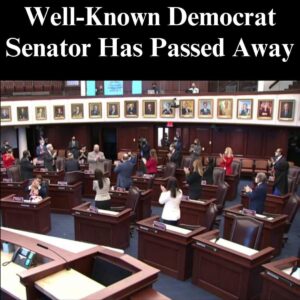A federal judge has ruled in favor of Elon Musk’s Department of Government Efficiency (DOGE), granting it access to student loan data despite objections from student groups who argue it could cause irreparable harm.
The ruling comes as Musk has pledged to slash the federal budget by up to $2 trillion annually, including billions in federal student loan funding, Newsweek noted.
U.S. District Judge Randolph D. Moss in Washington, D.C., ruled on February 17 that he would not grant a temporary restraining order against Acting Secretary of Education Denise Carter, allowing her to provide student loan data to DOGE. The University of California Student Association (UCSA) had sought the order, arguing in legal filings that DOGE’s access to student loan information would violate privacy rights and could potentially be misused.
Moss, who was appointed by President Barack Obama, ruled that: “UCSA’s members are not suffering (and will not suffer) an irreparable harm.
“In general, injuries are not ‘irreparable’ if there is a ‘possibility’ that ‘adequate compensatory or other corrective relief will be available at a later date,’” he said, quoting from the 1984 decision in Wisconsin Gas Co. v. F.E.R.C.
The judge also ruled that the Privacy Act and the Internal Revenue Code “provide a private right of action and money damages” if DOGE is involved in any “unauthorized disclosures” of students’ information.
“To the extent UCSA members have been injured by violations of these statutes, and they meet the other requirements for obtaining relief, there is at least a ‘possibility’ of compensatory relief at a later date,” he noted in his ruling, per Newsweek.
He agreed with the California student group that any disclosure of private information generally cannot be undone, “but that is not sufficient to show irreparable harm.”
“What UCSA overlooks is that the context of the dissemination matters. Courts find dissemination of information to be an irreparable injury where, for example, highly sensitive information will be made public, or end up in the hands of someone with no obligation to keep it confidential,” he said.
The ruling marks a significant setback for Democrats and their left-wing allies who are attempting to block DOGE’s federal budget cuts.
While UCSA could appeal to a federal circuit court, it currently has no legal recourse to prevent DOGE from accessing student loan data, Newsweek reported.
In his ruling, Moss noted that six federal employees are now working full-time to facilitate coordination between DOGE and the Department of Education. That collaboration will continue unless a higher federal court intervenes.
Last week, Musk blasted a federal judge who ruled against DOGE over its attempt to access certain U.S. Treasury Department data, calling for his impeachment.
Musk criticized the judge on his social media platform, X, stating that his team is working to identify waste and abuse in government systems under the direction of President Donald Trump.
In response to an X user who said that federal judges can be impeached by Congress, Musk responded, “It’s time.”
U.S. District Judge Paul A. Engelmayer issued a preliminary injunction after 19 Democratic attorneys general filed a lawsuit claiming that the Trump administration improperly allowed Musk’s team access to the Treasury Department’s central payment system, which violated federal law.
The payment system manages tax refunds, Social Security benefits, veterans’ benefits, and much more, disbursing trillions of dollars annually while safeguarding an extensive network of Americans’ personal and financial data. A hearing was held on February 14.
“I’d like to propose that the worst 1% of appointed judges, as determined by elected bodies, be fired every year,” he wrote in a social media post. “This will weed out the most corrupt and least competent.”
In another post, he added, “A corrupt judge protecting corruption. He needs to be impeached now!”
Since then, Musk has posted another alarming set of data, seemingly indicating that billions of taxpayer dollars are being sent to millions of Americans between the ages of 100 and 160, with some going to people allegedly more than 200 years old.





